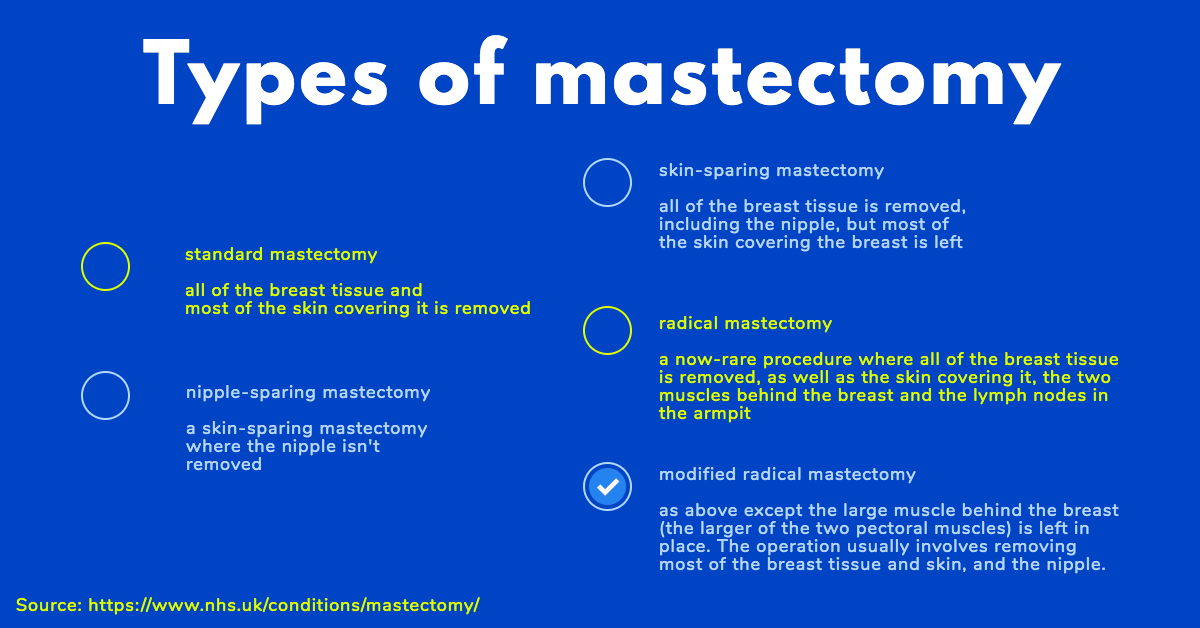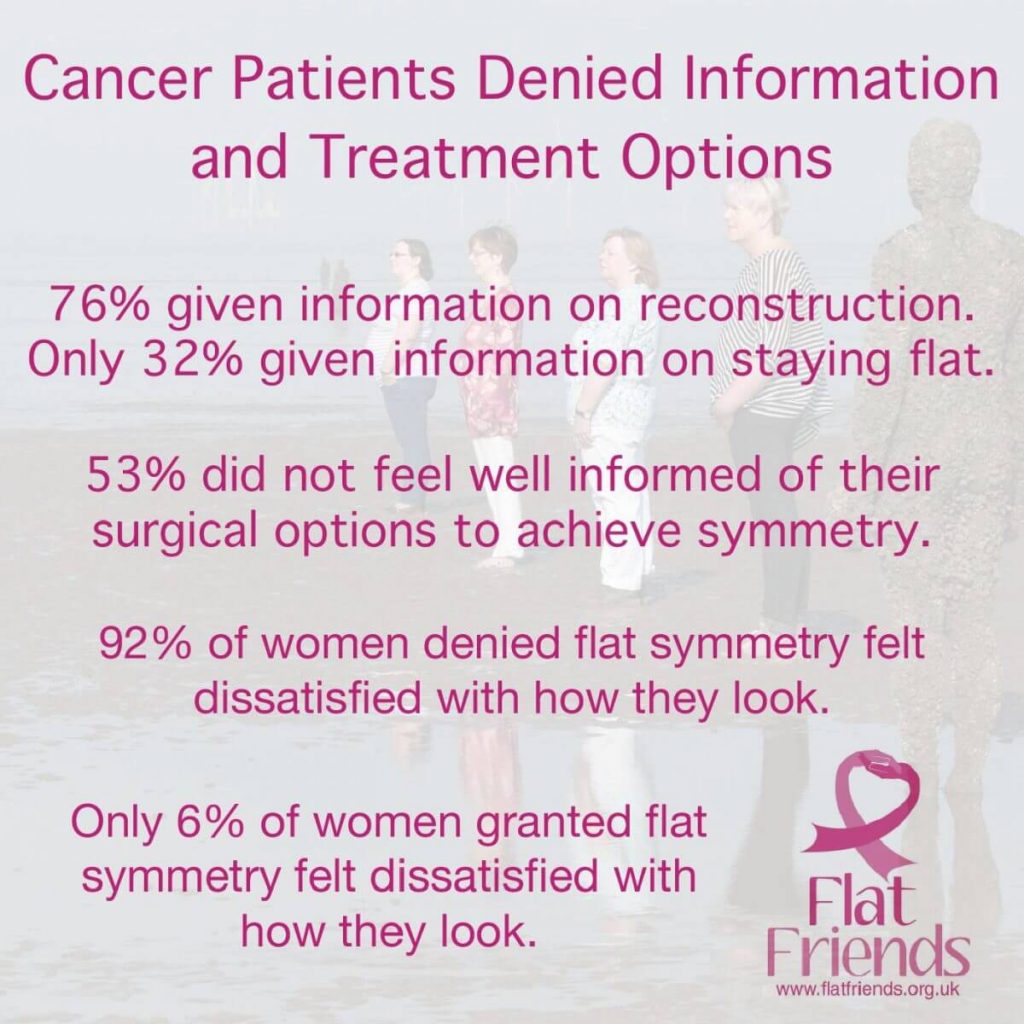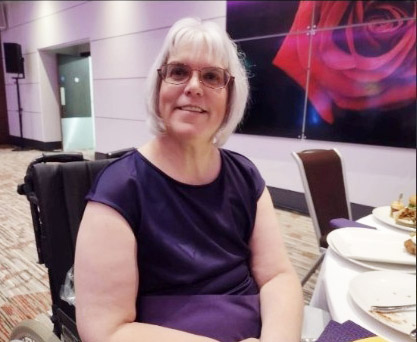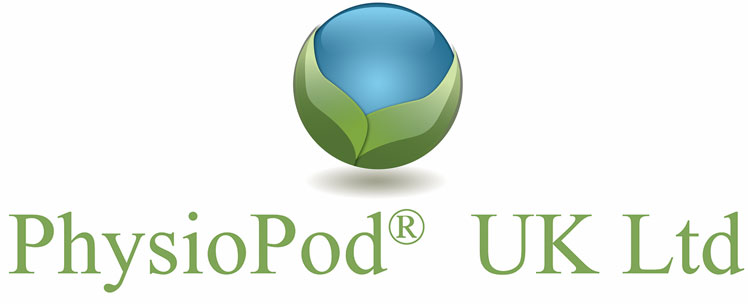Mastectomy Options in Breast Cancer Treatment - By Fiona Stevenson
"I attend support groups online and in person for cancer patients and have heard and experienced things myself that I definitely would not like others to go through.
PhysioPod Forward
In 1991, aged 23, Fiona had her first left breast lumpectomy, after she discovered a lump. Further lumpectomies followed in the same breast in 1992, 1998 and 1999. The lumpectomy in 1999 affected her left arm so severely that she lost the use of it.

That year, Fiona was diagnosed with DCIS (ductal carcinoma in situ). More lumpectomies were performed in 2004, 2005, and 2006. A further lump was discovered in her left breast, in April 2007 and Fiona underwent a modified radical left breast mastectomy with full axillary lymph node clearance. Fiona was diagnosed with secondary Lymphoedema of the torso and both arms in 2008. In 2009, severe back pain, which had commenced in 2006 had worsened. (investigations recommenced) and Fiona was issued with an attendant wheelchair. Fiona was diagnosed with hip dysplagia, an extra vertebra in her lower spine, fibromyalgia and osteoarthritis. In 2009, Fiona regained the use of her left arm through bench-pressing, after a chance opportunity in disability games organised by The Rotary Club in Coventry. A technique Fiona would use to teach others in her Swimming After Surgery (SAS) group. After regaining the use of her left arm use, this was replaced by a self propelling wheelchair with more modern versions as the years have passed. In June 2015, cancer was diagnosed in the right breast, and a modified radical mastectomy with full axillary lymph node clearance was performed. Fiona has now been cancer free for 8 years. Fiona believes that things happen for a reason and that sharing what's happened to her means lessons can be learnt, including how ladies are treated regarding breast cancer surgery, insurance provision for life and health, accessibility and services around domestic abuse.

He refused, saying, "You're in between men. You won't get a man if you don't have breasts". He was referring to the fact I was single following the breakdown of my first marriage.
In a survey conducted by Flat Friends in 2021, it found that patients facing mastectomy in the UK are being denied information and treatment options.

PHYSIOPOD WROTE TO FLAT FRIENDS FOR THEIR COMMENTS:

Best Wishes, Sarah Coombes
Chair, and Founder Trustee Flat Friends
“You should expect to be treated with dignity and respect by your breast care team. You should also be involved in making decisions about your care and treatment, including having time to ask questions and discuss the information that you are given. Your breast care team should support you with this.
You may be offered a lumpectomy (wide local excision) which removes the breast cancer and a margin of healthy tissue whilst keeping as much of your breast as possible. You can request a simple mastectomy instead of a lumpectomy if having breast-conserving surgery is not important to you.
Your surgeon will discuss reconstruction options with you, but this does not mean that this is the surgery you must have. If you are unsure about whether you want to have reconstruction you can delay your decision until later. You can change your mind about any procedures at any time, and your choice should be respected by your team.Your team may advise you to see a clinical psychologist to discuss your wishes and feelings to make sure that you are making the right decision for you.
The National Institute for Health and Care Excellence (NICE) produce guidelines for the management of diagnosed breast cancer and familial breast cancer. These guidelines aim to ‘help healthcare professionals offer the right treatments to people, taking into account the person's individual preferences.’
Things to consider:
- How you want to look and feel after surgery.
- The different ways breast shape can be created, including with reconstruction, or wearing prostheses under your clothes.
- How long the recovery time will be and the possibility of needing multiple surgeries.
- Possible complications post-surgery.
- If you need to delay reconstruction.
There are different phrases you can use to explain to others what you want your chest to look like if you know that you do not want to have reconstruction now or in the future. These include ‘Flat’, ‘Living Flat’, and ‘Flat Closure’. Whether you are having a single mastectomy or a double mastectomy, ‘Flat’ describes the space where your breast was. If you tell your surgeon and breast care team that you want flat closure then they should aim to create a smooth chest, without excess skin or tissue.
It is important to discuss your expectations with your surgeon before your surgery. You may want to find images of your ideal mastectomy scars to show to your surgeon. We have a gallery of mastectomies in our patient booklet and on our website.
If your surgeon will not agree to perform a mastectomy with flat closure, you have the right to be referred to a different surgeon, or different hospital on the NHS. Your hospital’s Patient Advice and Liaison Service (PALS) can offer further information, or help to resolve problems you have using the NHS.
You can find more information on our website www.flatfriends.org.uk. We also create safe, friendly environments for women to share experiences, ask advice, and offer support to each other. We support women who live in the UK or British Isles, as well as those who now live abroad. The charity exists for women who are living without reconstruction either through choice, necessity, or whilst awaiting delayed breast reconstruction.
For women who are facing a mastectomy and wish to find out more about their options, we provide a period of access to our private Facebook group. This allows women to speak with others and ask questions. We believe this is a vital element for patients making informed decisions about their surgery.
Our private Facebook groups have thousands of members who chat honestly and openly about mastectomy surgery and living flat.
We also run regular, regional face-to-face support groups across the UK and British Isles.
FLAT FRIENDS - USEFUL LINKS
About Fiona Stevenson


